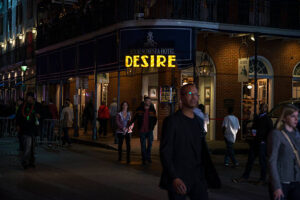Quality event photography provides more than a visual record of your meeting or conference. It helps relay a sense of place, captures important moments, and serves as the “eyes” for those who couldn’t attend. And with the growing use of on-site social media marketing, the need for good event photography has become more critical than ever before. In addition, quality photography has excellent value post-conference. Investing in professional photography provides you with an image library you can use year-round across multiple platforms, including marketing and promotional materials. To build that library, you need to find an experienced photography professional who understands the complexities of shooting events and can meet your specific needs. Here’s how to find and work with the right photographer for your next event.
1. Select an event specialist. Event photography is a very specialized field that requires its own set of skills. Meetings, conferences, and conventions can be incredibly challenging to shoot due to mixed lighting, dark scenes, and multiple environments, so an experienced event photographer will have the ability to work in different situations quickly, says Chris Savas, owner of Chris Savas Photography (full disclosure: writer’s spouse).
“A good event photographer will have a photojournalistic style, be able to think on his feet, and have the right equipment to produce the best results,” says Savas. “He needs to understand lighting, how to use available light or when to use strobe lighting, how to deal with subjects, and how to shoot in different environments—meeting rooms or on stages.”
Although word-of-mouth is one of the best ways to find a good photographer, another option is researching online and searching for professionals who convey the style of photography you’re seeking. Once you’ve narrowed it down to a few candidates, prepare a list of critical questions, including:
> How long have you been shooting meetings and events?
> What kind of equipment do you use, and do you have backup equipment if something
fails on-site?
> Do you shoot with an assistant, or do you work alone?
> What percentage of your business consists of conferences and conventions versus other events (such as weddings, bar mitzvahs, and portraits)?
> Do you charge by the hour, day, or event?
2. Define your needs and expectations. Before interviewing candidates, figure out what you want to get out of the event, says Patrick Schneider, owner of Patrick Schneider Photography. “When talking to the photographer, be clear on your expectations and know your budget, or at least have a sense of what you’re working with,” he says.
“Remember, just because somebody goes out and buys an expensive camera doesn’t mean they’re a professional photographer, so research these people. It would help if you were interviewing the photographer like an applicant coming to work for your organization,” Schneider adds.
An experienced photographer will also ask his fair share of questions, including the event’s location, the days and hours he will be expected to shoot, the kinds of images you’re looking for, and how you’ll use the pictures. All this can be compiled into an event schedule or shot list, which gives the photographer a clear understanding of where he needs to be at specific times, who and what you want to be captured, and any scheduling conflicts. Communicating specific event details helps the photographer define the job, create an accurate estimate and prevent surprising, last-minute cost add-ons, says Savas.
Most event photographers understand tight budgets and try to be flexible with rates, but when it comes to photography, you get what you pay for. “Are you looking for a photographer of record, someone who’s just going to record what’s happening on the stage, or are you looking for a photographer who’s not only going to see what’s going on on stage but also give you the key moments, a sense of place and pictures that have multiple uses beyond the grip and grin handshake shot?” Schneider asks. “You can’t get photography that’s cheap, fast, and done well.”
Give the photographer a realistic deadline for when you want the photos, and specify how you want them delivered, whether online or via portable drives. Once you and the photographer have agreed on needs, expectations, price, and terms, it’s time to draft the contract.
3. Build a relationship. Before the event, supply your photographer with an up-to-date schedule and review changes to the shot list. In addition, let him know how you expect him to dress and present himself to your executives, speakers, and attendees.
During the event, invite the photographer to walk-throughs to get an idea of room configurations and the schedule. Most importantly, brief your photographer about surprise events, awards, or presentations that aren’t on the schedule, suggests Savas. “The photographer is always in the need-to-know because he needs to be in a position to record whatever is happening, even when it’s a secret,” he says. “Surprises are great for the attendees but not for the photographer.”
Once the event ends, follow up with your photographer to ensure timely delivery and communicate any special requests (low-resolution photos that need to be quickly loaded to social pages, for example). If you’re happy with the images and want to book him again, ask soon. Good event photographers can be in demand and booked months or years in advance.


Average Rating